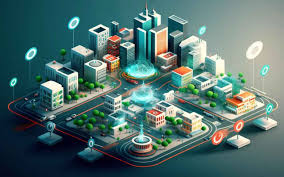By Maulik Unadkat, Founder, Beyond Alliance
In today’s digital age, artificial intelligence (AI) is revolutionizing the way we interact with our homes. AI-powered smart homes may anticipate homeowners’ needs before they even express them. For example, the home could prepare a relaxing environment with dimmed lights and soothing music as a homeowner returns from a long day at work. Additionally, AI could provide proactive maintenance suggestions, alerting homeowners to potential issues with appliances or systems before they become major problems.
This evolution marks a significant leap forward in how we perceive and utilize technology in our daily lives.
The Rise of AI in Smart Homes
AI has transformed smart homes from static systems to dynamic, responsive environments. Through machine learning algorithms, smart home devices can analyze data points such as usage patterns, environmental conditions, and user behaviors. This information empowers AI systems to make informed decisions and deliver personalized recommendations that optimize comfort, energy efficiency, and security.
Personalized Comfort and Efficiency
One of the standout features of AI in smart home systems is its ability to learn and adapt to homeowners’ routines and preferences. For instance, smart thermostats powered by AI can analyze patterns in a household’s heating and cooling usage. They learn to detect when is the home usually occupied and when is it empty. Real time natural light lux levels and temperature are sensed and based on this data, the AI can make real-time adjustments to optimize energy consumption, ensuring comfort, creating an ambience and simultaneously keeping utility bills in control.
Similarly, AI-driven circadian lighting can adjust brightness and color based on the colour of the sun. By creating an optimal lighting environment, these systems enhance the aesthetic appeal of the home and make it a very pleasant place to be in.
AI’s impact on home security is profound. Intelligent security systems equipped with AI can distinguish between normal activities and potential security threats. For example, AI-powered cameras can identify familiar faces and recognize unusual behavior, such as a stranger loitering near the entrance or activities like breakage of glass or walls. If a potential threat is detected, the system can send real-time alerts to the homeowner’s smartphone, enabling prompt action.
Moreover, AI can integrate with other smart home devices to provide a comprehensive security solution. For instance, if a security breach is detected, the AI can trigger smart locks to secure the doors and windows, turn on all lights to deter intruders and notify local law enforcement if necessary. This level of integration and responsiveness offers homeowners peace of mind, knowing their property and life is well-protected.
Intelligent Recommendations for Energy Management
Energy efficiency is a key concern for modern homeowners, and AI excels in this area by offering intelligent recommendations for energy management. Smart home systems can monitor energy usage across different devices and appliances, providing insights into consumption patterns. AI can then suggest ways to reduce energy wastage, such as turning off unused devices, optimizing heating and cooling schedules, and utilizing energy-efficient settings.
The Future of AI in Smart Home Automation
The potential of AI in smart home automation is vast, and its future is promising. As technology continues to advance, AI algorithms will become even more sophisticated, offering more precise and personalized recommendations. The integration of AI with other emerging technologies, such as 5G and edge computing, will further enhance the capabilities of smart home systems.
AI is transforming how homeowners interact with their homes. As this technology continues to evolve, it will undoubtedly set new standards for comfort, convenience, and sustainability in modern living. Embracing AI-driven smart home solutions is not just a trend but a necessary step towards a more intelligent and efficient future for homeowners worldwide.
Also Read: Cabinet Approves Rs 28,602 Crore Plan for 12 New Industrial Smart Cities to Boost Economic Growth









